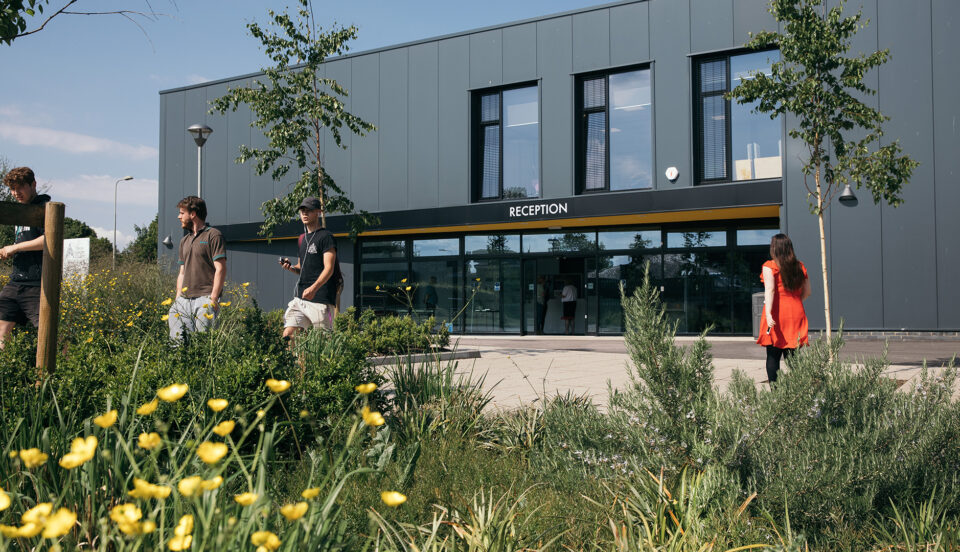Alongside your participation in elite sport and leisure, you will develop a wide range of knowledge of the physiology behind human anatomy. Assessing the impact of this within sporting performance and the planning of
The combination of physical performance and academic challenge provides an exciting opportunity. You can compete in your chosen sport, and then through academic study, assess your technical and tactical skills.
Physical Education is studied through a range of different sporting contexts and the impact it has on our performance. You will learn the reasons why we periodise our training, why some athletes outperform others, and how these are impacted by both the mental and physical challenges within athlete development.
You will also delve into the influence that history and technology have had on physical activity and how this has scoped the changes within sport today.
Key features:
- Straightforward assessment structure
- All key areas within sport are covered, leaving a range of educational pathways to consider
- Opportunities to perform competitively within your sport, alongside your academics.
- Provides an excellent grounding for education in other A-Levels
What you'll learn
Component 01: Factors affecting participation in physical activity and sport
Students gain a deeper understanding of key systems in the body and how they adapt to changes in diet and exercise. Students study the models and theories that affect learning and performance in physical activities, how different methods of training and feedback work and why their effectiveness differs from person to person. Conclusively, students will also study the impact and development of sport over the last century.
There are three topics:
- Applied anatomy and Physiology
- Skills Acquisition
- Sport and Society
Component 02: Factors affecting optimal performance in physical activity and sport
Students will investigate the physiological changes and adaptions to the body, and how this may impact the efficiency of the systems in sport. They also explore the psychological factors that affect group dynamics and leadership, as well investigating the psychological theories that explain the result of an athlete’s performance. Students will also assess the evolution of sport, over the last century, and the impact this has had on performance and coaching. Specifically, focusing on technological improvements in performance analysis and coaching.
There are three topics:
- Exercise Physiology and Biomechanics
- Sports Psychology
- Sport and Society and Technology in sport
Component 03: Non-exam Assessment: Practical performance in physical activity and sport
Students are assessed in the role of a performance in one practical activity of their choosing. They are required to demonstrate effective performance, the use of tactics or techniques and the ability to observe the rules and conventions under applied conditions.
Students are also assessed through a performance analysis assessment. They will need to draw from their knowledge, skills and understanding from across the program; to assess their strengths and weaknesses of their assessed techniques and tactics.
How you'll learn and be assessed
30% non-exam assessment, providing students with the opportunity to apply the theory to their chosen sporting performance. Students will be further required to analyse their performance, analysing strengths and weaknesses.
- Non- Exam Assessment (NEA). Demonstration of technical and tactical components of your chosen course, as well as a written analysis and evaluation (30%).
- Factors affecting participation in physical activity and sport. Two-hour written exam at the end of the two-year program, with a variety of question types: Short and extended answer questions (35%).
- Factors affecting optimal performance in physical activity and sport. Two-hour written exam at the end of the two-year program, with a variety of question types: Short and extended answer questions (35%).
Progression
Where can A Level Physical Education take me?
- A Level Physical Education is an excellent base for a university degree in Sports Science, Sports Management, healthcare inclusive of Physiotherapy and Paramedic Sciences, Teaching, or exercise and health.
- The transferable skills you learn through your study of A-Level Physical Education, such as decision making, independent thinking and evaluation of own your own ability, can provide an excellent platform for a range of non-sport related work places.
- Physical Education can also complement further study in biology, human biology, physics, psychology, nutrition, sociology and many more.
Entry requirements
Applicants should have five GCSEs at grade 5 or above, including English, maths and PE.
